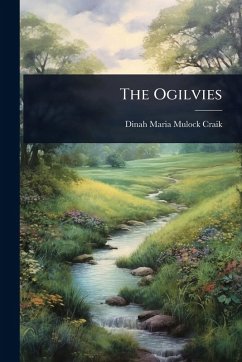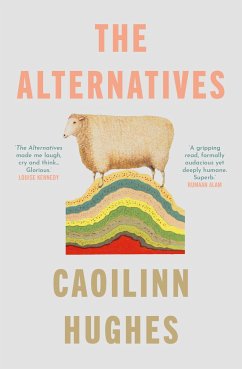
The Ogilvies
A Novel (1875)
Versandkostenfrei!
Versandfertig in 1-2 Wochen
36,99 €
inkl. MwSt.

PAYBACK Punkte
18 °P sammeln!
The Ogilvies is a novel written by Dinah Maria Mulock Craik and first published in 1875. The story is set in nineteenth-century England and follows the lives of the Ogilvie family, particularly the three sisters, Lucy, Phyllis, and Geraldine. The novel explores themes of family, love, and class differences.The story begins with the death of Mr. Ogilvie, leaving his wife and children to fend for themselves. The family is forced to move to a smaller house and adjust to a new way of life. Lucy, the eldest sister, takes on the role of the caretaker and tries to keep the family together. Phyllis, t...
The Ogilvies is a novel written by Dinah Maria Mulock Craik and first published in 1875. The story is set in nineteenth-century England and follows the lives of the Ogilvie family, particularly the three sisters, Lucy, Phyllis, and Geraldine. The novel explores themes of family, love, and class differences.The story begins with the death of Mr. Ogilvie, leaving his wife and children to fend for themselves. The family is forced to move to a smaller house and adjust to a new way of life. Lucy, the eldest sister, takes on the role of the caretaker and tries to keep the family together. Phyllis, the middle sister, is beautiful and charming but has a tendency to be selfish. Geraldine, the youngest sister, is quiet and thoughtful.As the story progresses, the sisters navigate their way through various challenges, including financial difficulties, romantic entanglements, and societal expectations. Lucy falls in love with a wealthy man, but their relationship is complicated by their class differences. Phyllis becomes engaged to a man who is not what he seems, and Geraldine struggles to find her place in the world.The novel is a compelling portrayal of family dynamics and the challenges faced by women in nineteenth-century England. Craik's writing is rich and evocative, capturing the nuances of the characters' emotions and experiences. The Ogilvies is a timeless classic that continues to resonate with readers today.This scarce antiquarian book is a facsimile reprint of the old original and may contain some imperfections such as library marks and notations. Because we believe this work is culturally important, we have made it available as part of our commitment for protecting, preserving, and promoting the world's literature in affordable, high quality, modern editions, that are true to their original work.












